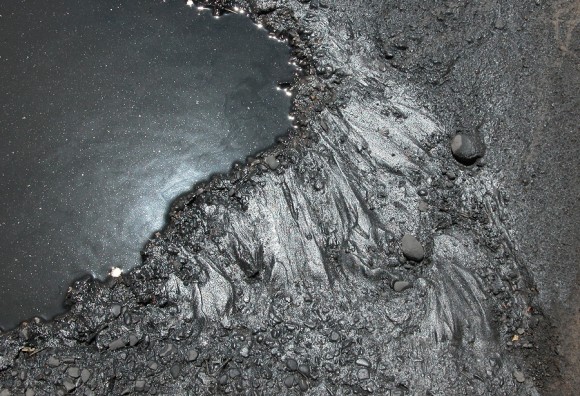Lawyers for BP Plc and the federal government sparred on Monday over the methods competing teams of scientists used to estimate the size of the company’s 2010 oil spill in the U.S. Gulf of Mexico.
U.S. District Judge Carl Barbier will use evidence presented during the next 12 days of trial to determine the total amount of oil that gushed into the Gulf for 87 days after the Macondo well blew out. Potential fines under the Clean Water Act could top $17 billion, an amount close to BP’s annualized profits as of last quarter.
The disaster left 11 men dead and huge stretches of sea and coast fouled with oil.
The government told the court that some 4.9 million barrels spilled. BP has estimated just 3.26 million barrels escaped into the sea. Both sides acknowledged that 810,000 barrels of oil collected in cleanup will be excluded from the final amount.
Arriving at a consensus estimate is difficult as Macondo was an exploration well, unlike a production well that would normally have highly accurate gauges measuring flow rates for oil.
The government believes oil flowed from the well at a rate of about 62,000 barrels a day shortly after the explosion and “waned down to 53,000 toward the end,” a Justice Department lawyer said in court.
In his opening statement for the government, attorney Steve O’Rourke likened the spill to an Exxon Valdez-type spill occurring about every 4.5 days for the duration of the spill.
The Valdez tanker is widely regarded as having carried 260,000 barrels during a mishap in 1989 in Alaska.
O’Rourke contended that BP’s estimates for the Gulf of Mexico spill varied widely and the company was emphasizing the lower end of those ranges.
They “told their shareholders that the flow was about 4 million barrels,” O’Rourke said. “Today they’re going to say it was 2.4 to 3.6 million.”
BP lawyer Mike Brock took issue with government scientists’ methods for calculating the spill, saying they had a wide range of error and that they rushed to come up with an estimate in the days after the spill to appease the public.
Brock also said government scientists relied too heavily on hydraulics calculations that require detailed information about daily changes in the well.
“The government cannot account for all those changes,” Brock said.
He said a flaw in the government’s calculations was that its experts assumed the Macondo well could tap the entire underlying reservoir of oil. BP’s petroleum engineering experts, on the other hand, estimated that the well actually had access to as little as 10 percent of the reservoir, Brock said.
Brock also showed excerpts from a June 2013 video deposition given by one of the government’s expert witnesses, Dr. Ronald Dykhuizen, in which he discussed his own earlier estimate that the oil spilled ranged from 3.5 million barrels to 6.5 million barrels and that the best estimate was 5 million barrels.
FINES NEXT YEAR
This second phase of the trial, expected to last three more weeks, covers how much oil spewed from the well.
In the costliest scenario, the fines under the Clean Water Act push provisions BP has made well beyond the $42 billion set aside thus far for clean-up, compensation and damages.
The company has shed about $39 billion in assets to cover most of its provisions.
The first phase of the trial, which wrapped up in April, looked at dividing blame among BP and its contractors; Transocean Ltd, which owned the drilling rig, and Halliburton Co, which did cement work on the well.
Penalties are not expected to be assigned until early next year after the trial’s third phase.
Under the Clean Water Act, negligence can be punished with a maximum fine of $1,100 for each barrel of oil spilled; a gross negligence verdict carries a potential $4,300 per barrel fine.
If the court judged the spill to have been 4.09 million barrels – the government’s estimate less oil recovered – the penalty for negligence could reach $4.5 billion. The penalty for gross negligence could run to $17.6 billion.
The case is In re: Oil Spill by the Oil Rig “Deepwater Horizon” in the Gulf of Mexico, on April 20, 2010, U.S. District Court, Eastern District of Louisiana, No. 10-md-02179.
Was this article valuable?
Here are more articles you may enjoy.



 Experian Launches Insurance Marketplace App on ChatGPT
Experian Launches Insurance Marketplace App on ChatGPT  Preparing for an AI Native Future
Preparing for an AI Native Future  Jury Finds Johnson & Johnson Liable for Cancer in Latest Talc Trial
Jury Finds Johnson & Johnson Liable for Cancer in Latest Talc Trial  Florida Insurance Costs 14.5% Lower Than Without Reforms, Report Finds
Florida Insurance Costs 14.5% Lower Than Without Reforms, Report Finds 

